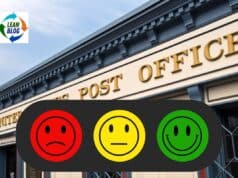There was a really good discussion and story on the ESPN program “Sunday NFL Countdown” today about individual player incentive payments — why are they necessary to motivate players and how do they distort the game in the last week of the season? Here is a related news story about NFL quarterbacks getting incentive payments for winning playoff games. Um, isn't it their natural intrinsic motivation to try to win games and make it to the playoffs?
As Dr. Deming would have said, individual incentives distort the system and they remove intrinsic motivation. Dan Pink (hear my podcast with him here) wrote about this in his book Drive: The Surprising Truth About What Motivates Us – his prescription is to pay people enough of a salary so they aren't worried about money and then don't get in the way of intrinsic motivation. How would Mark Sanchez play differently if the Jets gave him a higher base salary without an incentive to make the playoffs? It is a team game, yes?
Think about cases where quarterbacks get a bonus for having a certain “passer rating.” This gives them, possibly, a financial incentive to “play careful” and not throw interceptions (something that hurts your rating… and maybe hurts the team's chance of winning).
My notes from the ESPN piece:
Agent Drew Rosenhaus says they would prefer guaranteed income, but incentive clauses are “a way to bridge the gap” – he calls it “performance-based pay.” But my question is how to gauge individual performance in a team game – these team sports include football, healthcare, and business.
Wide receiver Andre Johnson (one of the best in the NFL) says you want to think about the team first, but the contract incentives might get in the way (my paraphrasing).
In 2008, Green Bay Packers running back Ryan Grant had a chance to earn a $1.3 million bonus for reaching 1200 yards and being in the top 5 running backs. He had a long touchdown run that would have gotten him the record, but an official's replay overturned the play, costing him (it seems) the $1.3 million. It probably had nothing to do with the outcome of the game… at least Grant could smile about it in the story.
In 2007, Ravens defensive end Terrell Suggs needed one sack to earn an incentive payment. He got the sack… and earned $5.5 million. So how did that impact the way Suggs played that game? Was he willing to take wild chances (risk giving up big running plays) just to increase his chances of sacking the quarterback?
Patriots running back Corey Dillon had a $350,000 incentive riding on the last game of the year. Coach Bill Belicheck told him earlier in the week that the team would pay the incentive no matter what happened. This seems like a good practice to keep players focused on the team and not individual stats. Maybe Tom Brady isn't the only reason he has those Super Bowl rings?
In 2009, Ryan Grant again was just short of the big incentive payment in the last week of the season. Grant said, “We didn't necessarily need the win” (because I presume the Packers were resting starters going into the playoffs to avoid injury), but “it became an issue of whether I'm going to get that yardage.” He needed 48 yards to earn $2 million. The Packers coaches, unlike Belichick, had players tracking Grant's yards and how close he was. The Arizona players also knew the number, Grant said. He hit his target with 3 yards to spare.. Grant “told quarterback Aaron Rodgers NOT to check out of run plays” – putting himself before the team. That's a clear distortion of the system.
Agent Rosenhaus said, “Guys play for the game, but it's also a business.”
Receiver Terrell Owens would have earned $333,333 for having a 10-touchdown season, but he got hurt after week 15 – having scored 9 TDs for the year.
Also at stake today: Dolphins RB Ronnie Brown is 30 yards short of a $500,000 bonus. Browns WR Josh Cribbs earns $100,000 for making one more reception. TE Kellen Winslow needs 7 catches to earn $150,000.
Former player Keyshawn Johnson told a story about telling his QB before the last game about how many yards he needed for his incentive payment in 2004. Johnson broke his ankle and WANTED TO GO BACK IN THE GAME to earn $500,000 for 20 more yards. “I'm going to play to win the game, but I was mindful I had that in my contract.”
Former player Tom Jackson asked why the money is offered. He asks why if a player has a $90 million contract over many years, why would you offer him $100,000 for making the Pro Bowl? “If I'm paying you $90 million, I EXPECT you to go to the Pro Bowl!!!”
Mike Ditka told a story about playing all of the 1964 season on a broken ankle. He had a chance to earn $1,000 for going to the Pro Bowl. The legendary coach George Halas didn't want Ditka to go, as he might get hurt. Ditka said, “How about you pay me the money for not going?” Halas replied, “Why don't you go?”
Chris Carter commented that incentives are a huge part of the contracts. When he played, “The Minnesota Vikings paid me like a Pro Bowl receiver, so my incentives were just a little bone here and there.”
Tom Jackson again said, “When I played, the incentive was to play as well as you could, to go to the playoffs and get a chance to win. That was the only incentive we needed.”
These are interesting things to think about as we watch football today… and as we go through the annual “incentive plan” and “performance incentive” planning in our organizations? I think the ESPN story emphasized Dan Pink's main point from “Drive” that incentives work – however, we need to be aware of the “side effects” and unintended consequences that can result.
Is your organization following any of Dr. Deming's teachings about the dangers of individual incentives? Have you been inspired by Dan Pink's book to make any changes?
Please scroll down (or click) to post a comment. Connect with me on LinkedIn.
Let’s build a culture of continuous improvement and psychological safety—together. If you're a leader aiming for lasting change (not just more projects), I help organizations:
- Engage people at all levels in sustainable improvement
- Shift from fear of mistakes to learning from them
- Apply Lean thinking in practical, people-centered ways
Interested in coaching or a keynote talk? Let’s talk.
Join me for a Lean Healthcare Accelerator Trip to Japan! Learn More










I think it absolutely distorts the game, just as it was a backstory in the movie Any Given Sunday. I don’t have a problem with it if it promotes the win, however. A win is a win. If there are no conditions on how we get the win, then everyone is on the same page, especially with the customers – the fans. Interestingly, I think fantasy football has had a similar impact. Because the fans are more aware than ever of individual stats, this works its way into the media and the players minds.
I’m all for team incentives, in sports or business. Too many business incentives are individual or department based, and we see the dysfunctions caused by that every year. Yet, the solution often seems to be MORE incentives.
I’m all for profit sharing and things that are done to get people working together for the sake of customers or patients.
Too many of the sports incentives are individual. I’d argue that Ryan Grant was beyond selfish by asking his QB to not audible out of running plays. Grant was putting his own yardage ahead of the team goals (running the right play given the situation and what the defense is showing). So I’d personally root against Ryan Grant getting his damn incentives.
But as Tom Jackson said (I think) on ESPN this morning — you can’t blame the players if that is the structure of the contract. The owners and agents play a big part of that. I’m sure the salary cap rules play a factor (how do bonuses count against salary cap????)
The incentives are ineffective. I really think a big part of it is to have “insurance” against injuries, deciding you don’t want to play (Albert Haynesworth), reckless behavior (Ben Roethlisberger) and the enormously large contracts. Also I think it can help deal with egos. Look we think you are great, you think you are great, we will pay you huge sum as long as you do great…
I think the pay system is messed up. But I really think more mundane reward systems in companies do much more damage.
Partially I think this is less of an issue than it may seem because the distortions are going to be there anyway. If you have some great stats you are going to get a huge amount of money (either as a bonus or in your next contract or just keep a job in the NFL and get a huge amount). So the incentive to get your stats is huge.
I must say if you already have a $10,000,000 contract I can see you caring more about winning than money. But if you have a $200,000 contract in your second year and you may well be at the end of your professional life you have got to be crazy to care more about winning that securing a job or a promotion the next year (luckily for coaches the correlation between setting yourself up for a job or promotion and winning are good – not perfect but good). In my opinion anyway. Now maybe they all are devoted to the game and don’t care about money but I can’t really believe that.
Neat article. I’m sure it distorts the game a bit in week 17. But week 17 is always distorted with teams resting starters, etc. All the more reason not to increase the number of regular season games. And how will all this change with a possible lockout?
[…] individual scores, especially if tied to annual contract incentive bonuses, run the risk of harming the team’s performance? Isn’t almost any workplace a team […]
Here’s an article about some of the incentives for the 2023 season that includes some stories about distortions in previous seasons:
NFL incentives: Baker Mayfield and others have huge bonuses on the line in Week 18
Comments are closed.